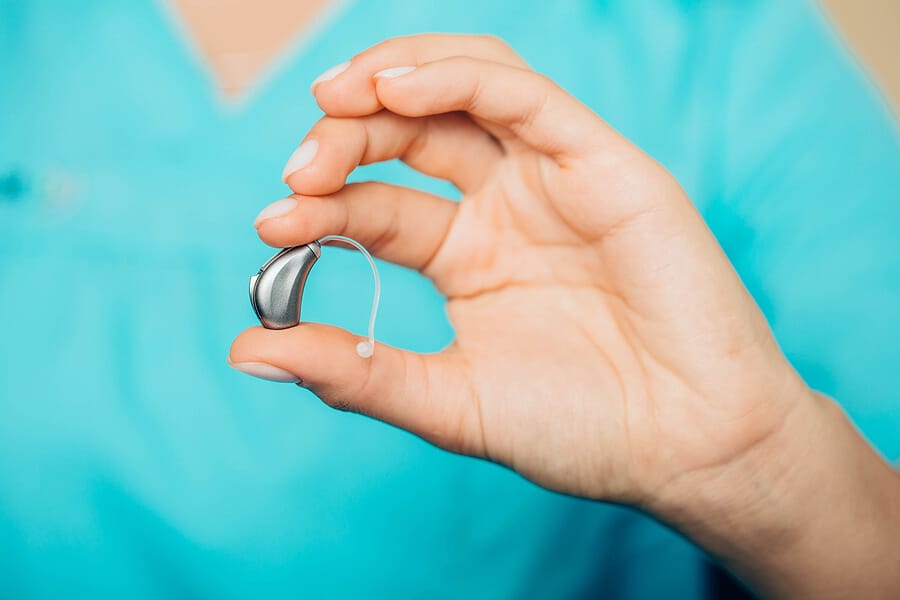
- A Step-by-Step Look at How Hearing Aids Make Sounds Sharper - May 5, 2025
- Causes of Conductive Hearing Loss? - April 27, 2025
- Can Treating Hearing Loss Reduce Stress? - April 15, 2025
Modern hearing aids have revolutionized the way individuals with hearing loss experience the world around them. These technological marvels enhance communication, enrich experiences, and reconnect people with the sounds they cherish. To ensure the longevity and optimal performance of your hearing aids, adopting a proactive approach to maintenance is paramount. From routine cleaning to proper storage, here are expert tips that will help you keep your hearing aids in top-notch condition.
Cleanliness Is Key
Regular cleaning is the foundation of hearing aid maintenance. As these devices spend hours in close contact with your skin, they accumulate natural oils, sweat, and debris. A clean hearing aid not only functions better but also extends its lifespan. Here’s how to keep them sparkling:
- Daily Wipe-Down: Use a soft, dry cloth to gently wipe the exterior of your hearing aids to remove surface dirt and oils.
- Cleaning Tools: Invest in a hearing aid cleaning kit that includes brushes, wax removal tools, and specialized cleaning wipes. These tools are designed to safely clean hard-to-reach areas.
- Remove Earwax: Regularly check and clean the sound outlet or receiver tube to prevent wax buildup that can obstruct sound transmission. Use the provided tools or a soft brush to remove wax carefully.
- Avoid Liquids: While cleaning wipes and solutions are often provided, avoid using liquids directly on the hearing aids to prevent potential damage.
Handle with Care
Your hearing aids are delicate electronic devices that require gentle handling to avoid accidental damage:
- Clean Hands: Always clean your hands before handling your hearing aids to prevent transferring oils and dirt onto the devices.
- Over Soft Surfaces: When cleaning or changing batteries, work over a soft surface like a folded cloth or a table to prevent accidental dropping.
- Battery Handling: When inserting or removing batteries, do so gently to avoid bending or damaging the battery contacts.
Batteries and Power Management
Hearing aid batteries are the lifeblood of your devices. Proper battery management ensures consistent performance:
- Battery Storage: Store extra batteries in a cool, dry place away from direct sunlight. Avoid carrying loose batteries in pockets where they might contact metal objects.
- Power Down: When not in use, turn off your hearing aids or open the battery compartment to preserve battery life.
- Regular Replacement: Replace batteries as soon as you notice decreased performance. Keep spare batteries on hand for emergencies.
Environmental Considerations
Environmental factors can influence the health of your hearing aids:
- Water and Moisture: Protect your hearing aids from moisture by removing them before showering, swimming, or engaging in water-related activities. Consider using a hearing aid dehumidifier to prevent moisture buildup.
- Extreme Temperatures: Avoid exposing your hearing aids to extreme temperatures, whether hot or cold, as this can impact their functionality.
Regular Professional Check-ups
Professional maintenance is crucial to address issues that may be beyond your control:
- Regular Check-ups: Schedule regular appointments with your audiologist or hearing care professional for professional cleaning, adjustments, and performance checks.
- Professionally Handled Repairs: If you encounter problems, avoid DIY fixes. Seek professional help for repairs to prevent further damage.
Storage Solutions
Proper storage can prevent accidental damage and prolong the life of your hearing aids:
- Storage Case: When not in use, store your hearing aids in a protective case to shield them from dust, dirt, and potential impact.
- Safe Locations: Keep your hearing aids away from curious pets and young children to avoid unintended mishaps.
Final Thoughts
Maintaining your hearing aids is an investment in your ability to connect with the world around you. By integrating these expert maintenance tips into your daily routine, you can ensure that your hearing aids continue to deliver the best possible sound experience. Regular cleaning, careful handling, proper battery management, environmental considerations, professional check-ups, and mindful storage collectively contribute to the longevity and optimal performance of your invaluable hearing aids. We are fully confident that in implementing these steps, you will see the return on your investment and hear happily for years to come.
We hope you found today’s article to be interesting and helpful. If you have any questions or would like to schedule your next hearing checkup, please contact us. Our friendly team of hearing professionals are ready to assist you with all your hearing related needs.
